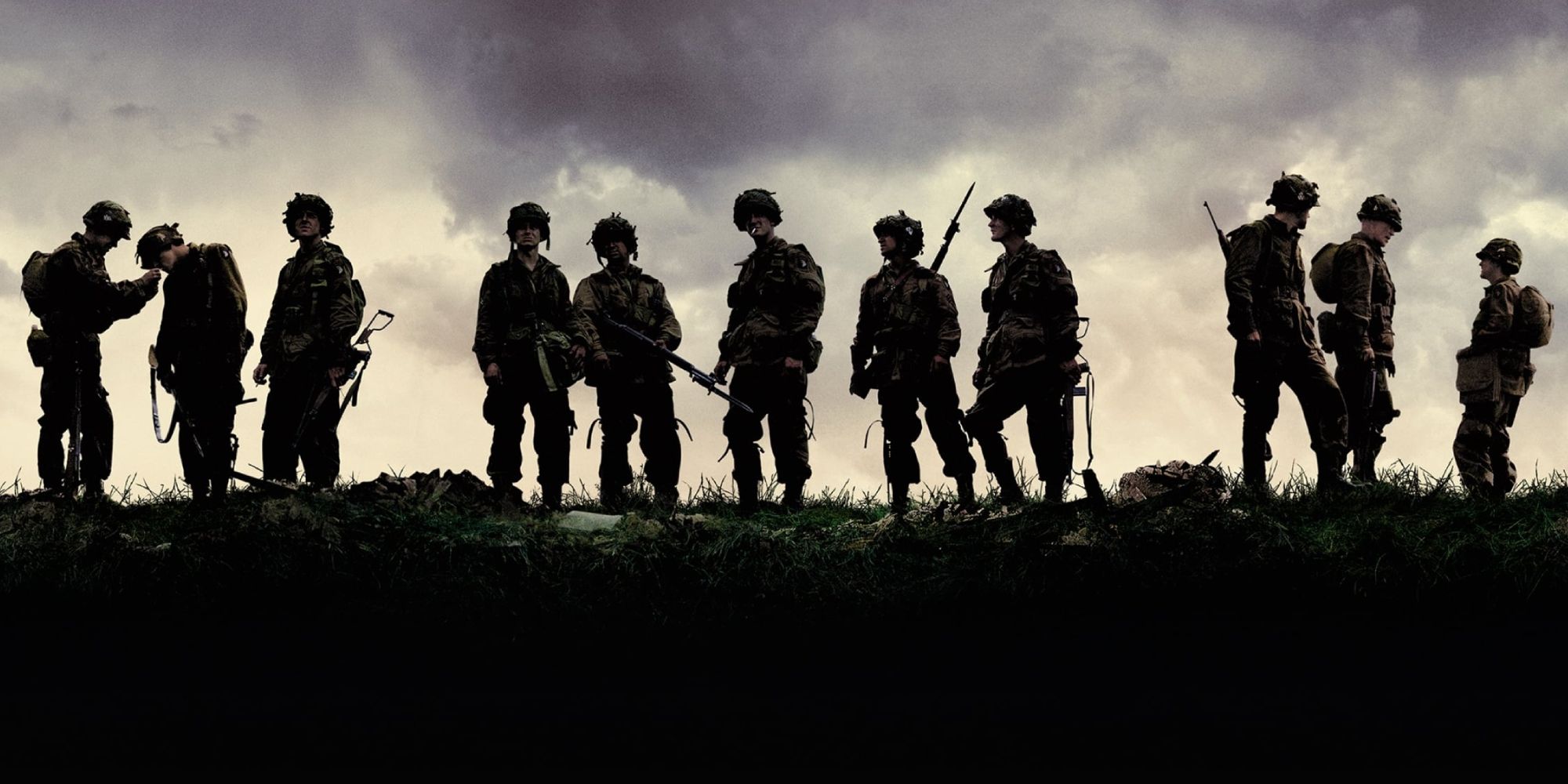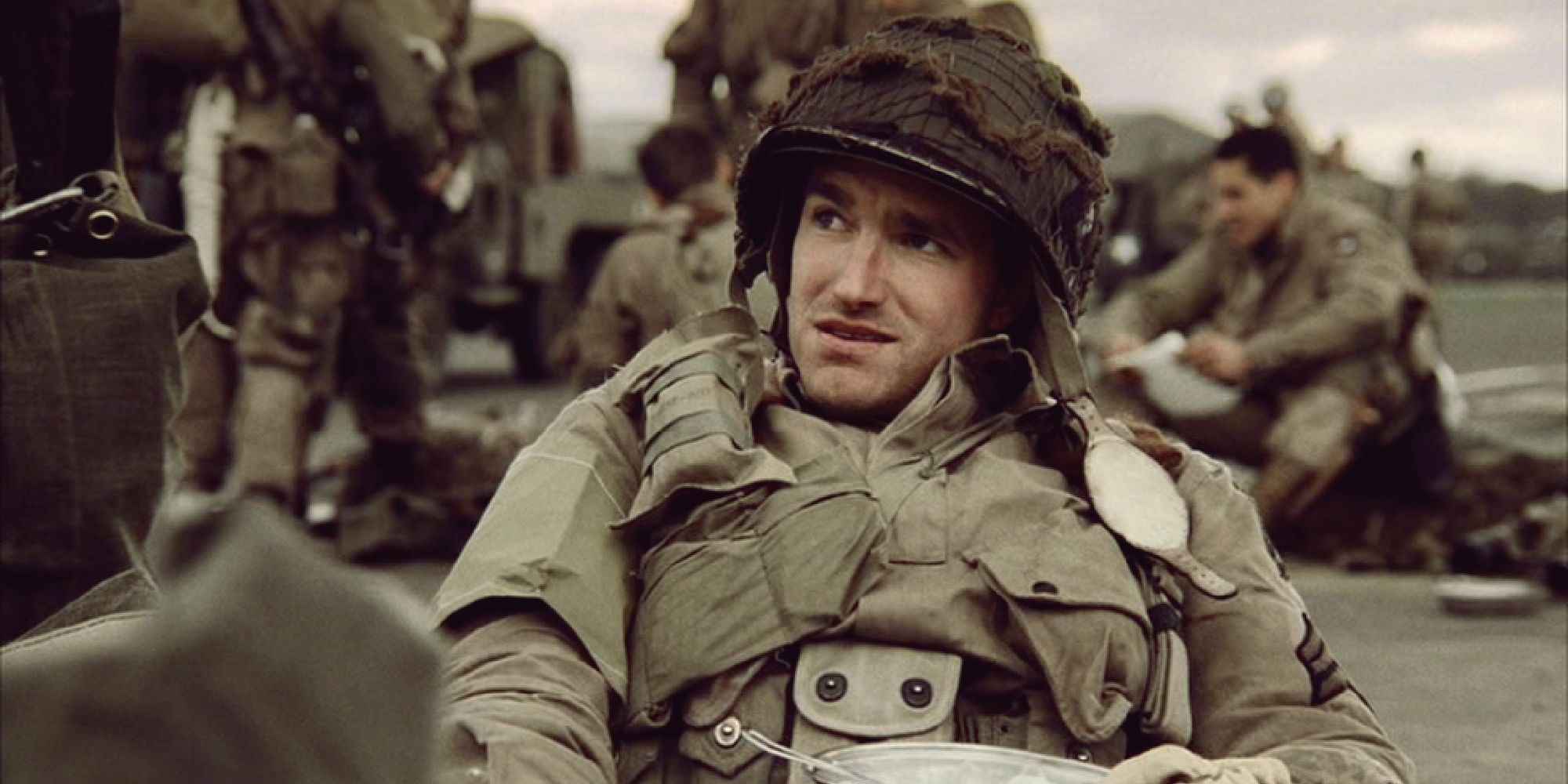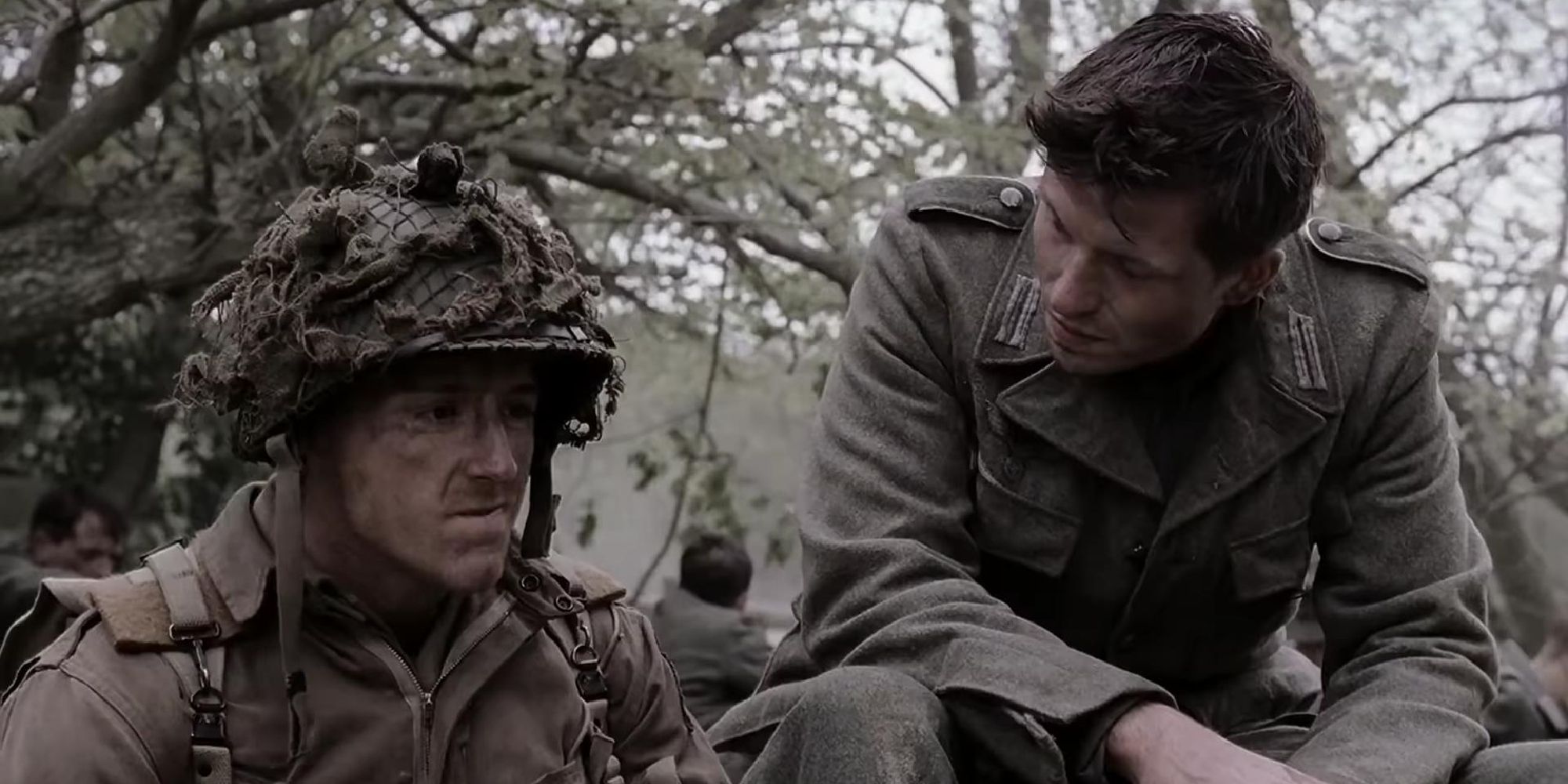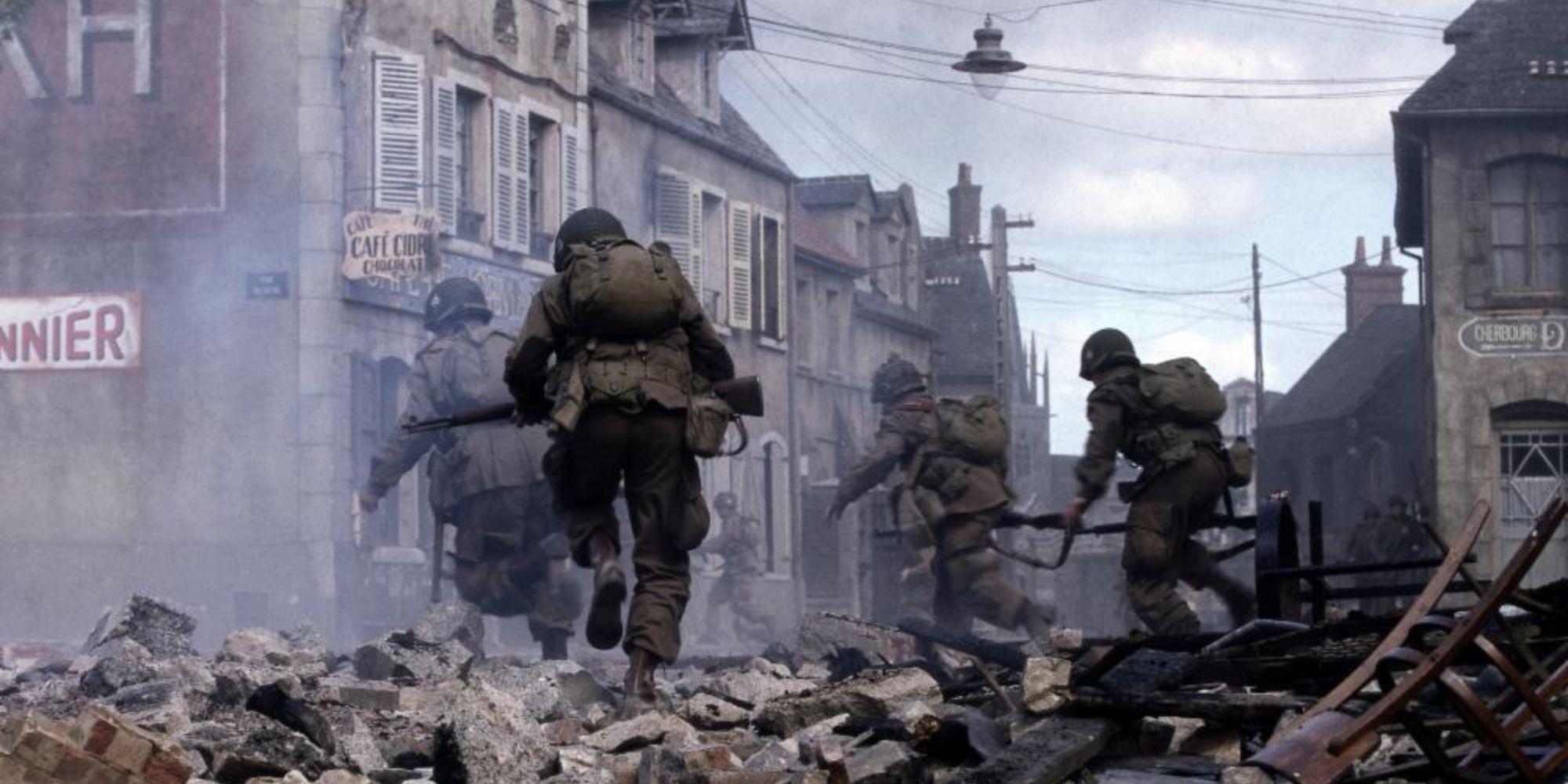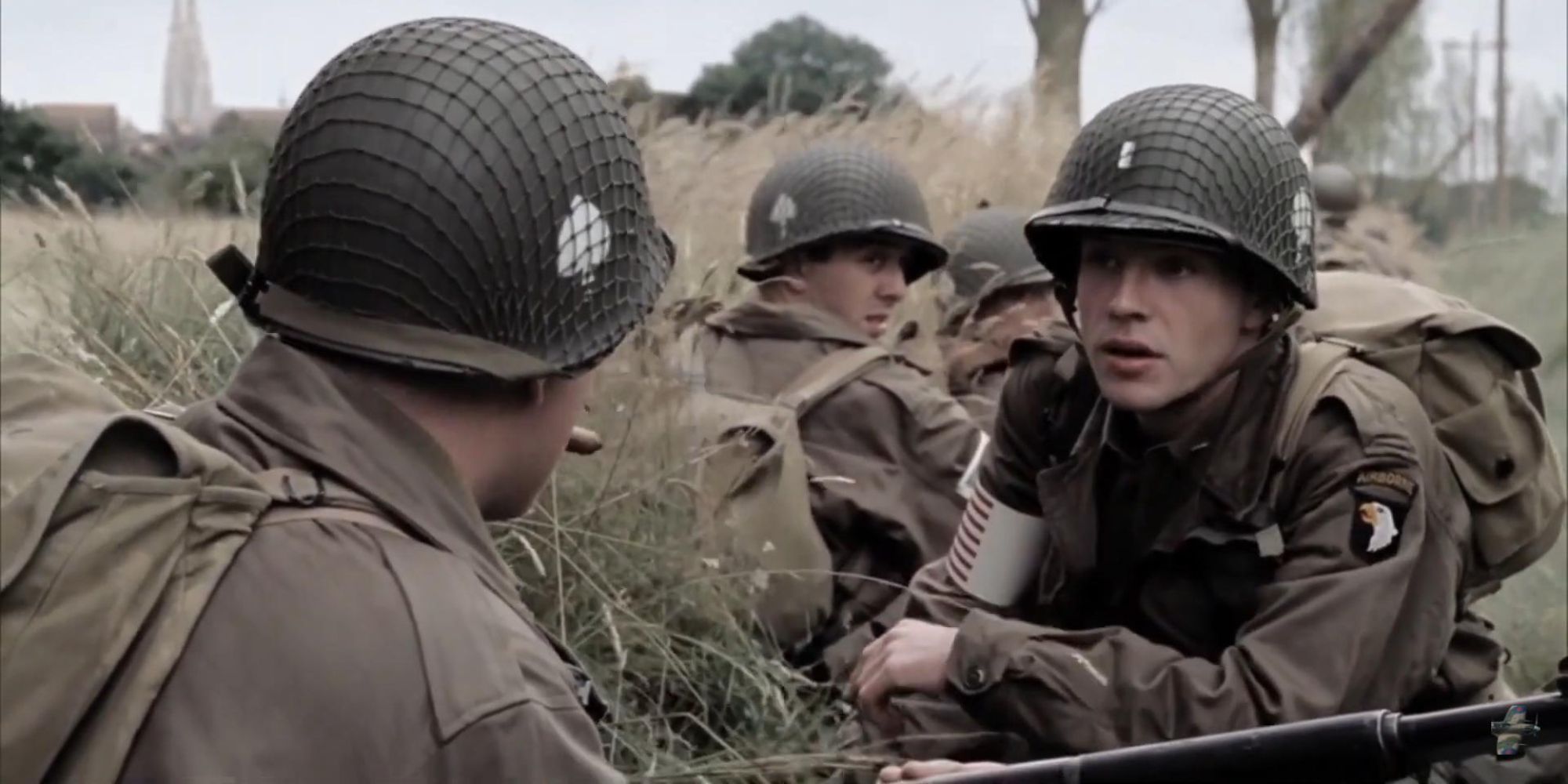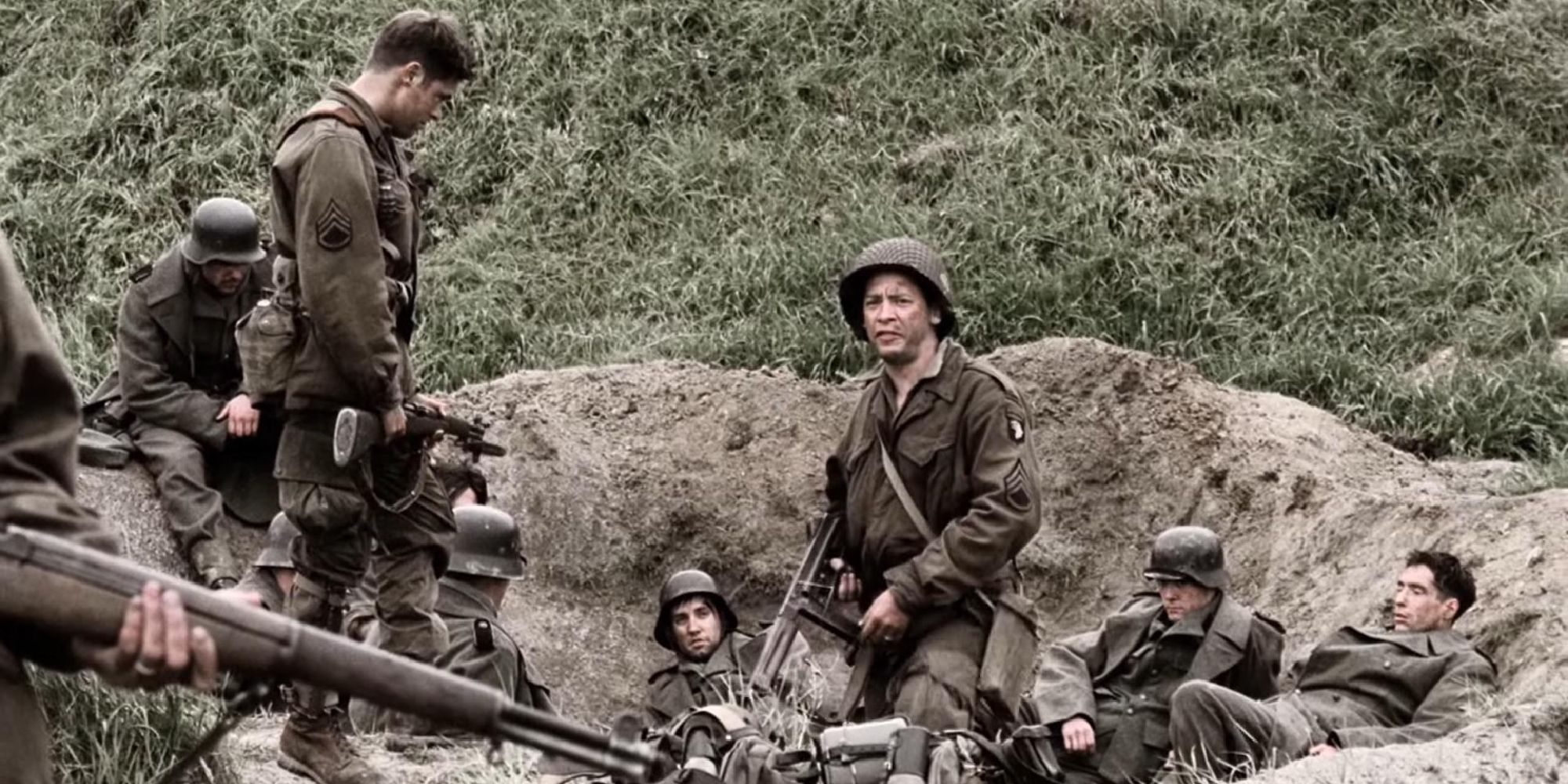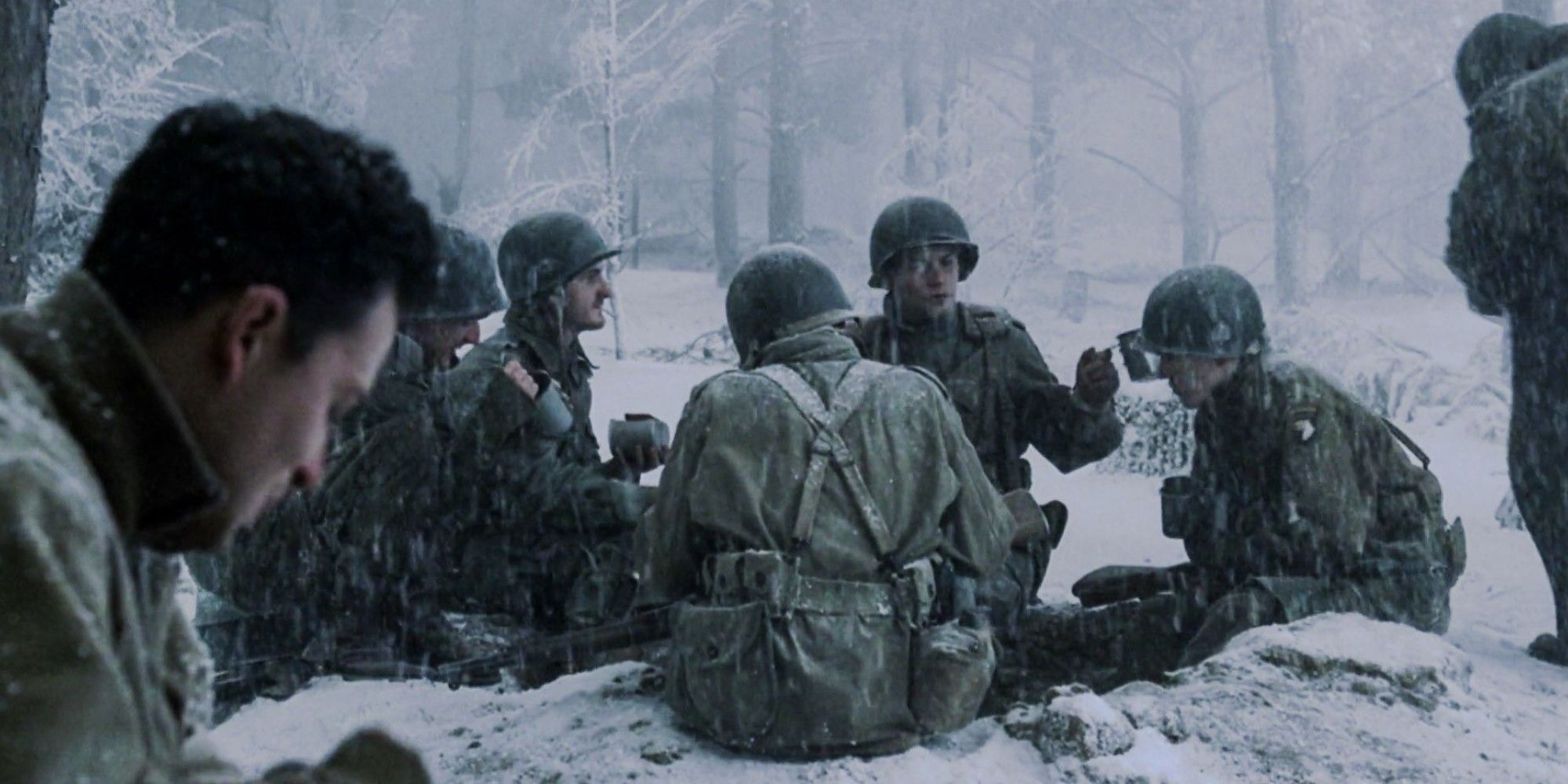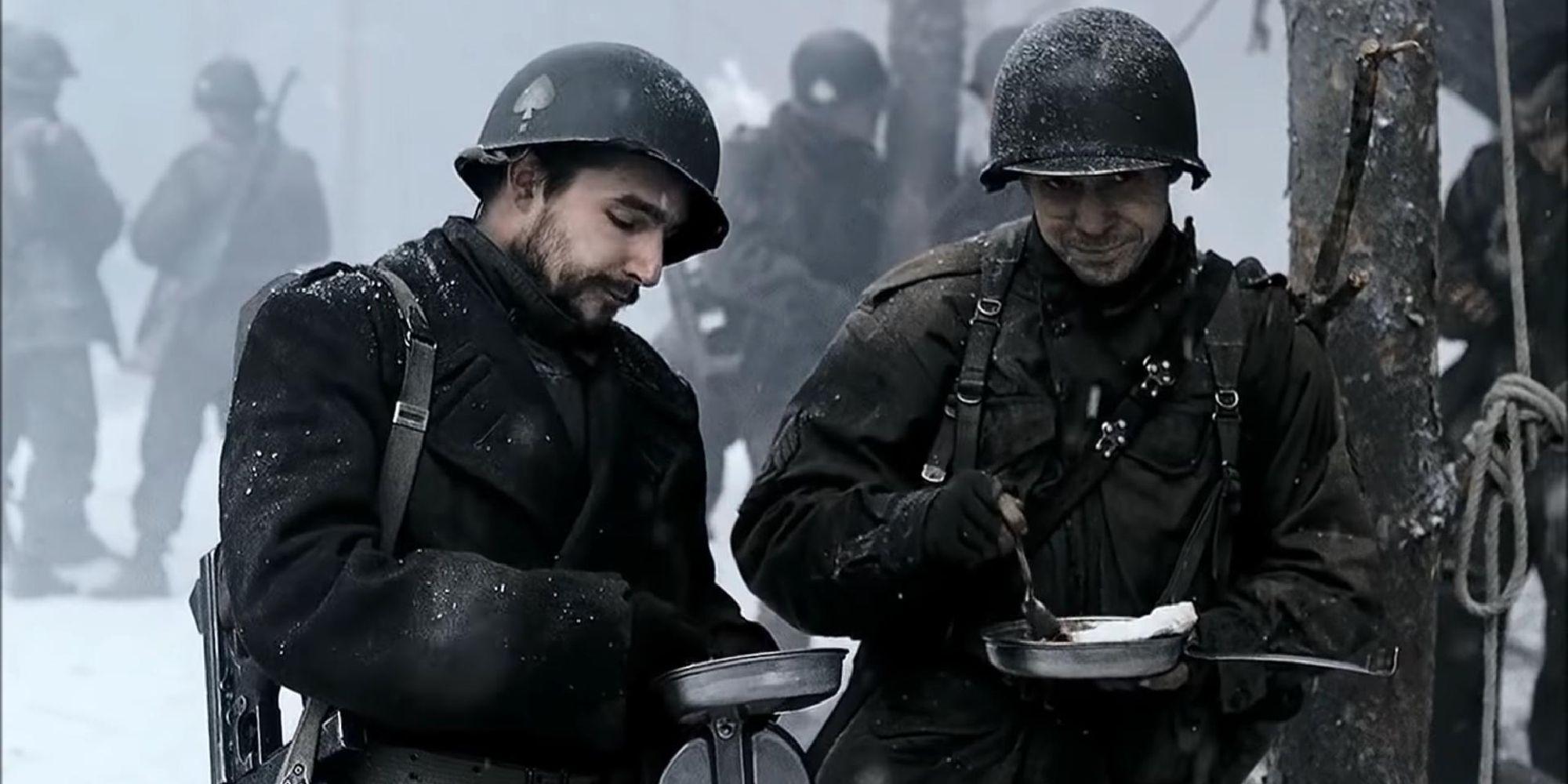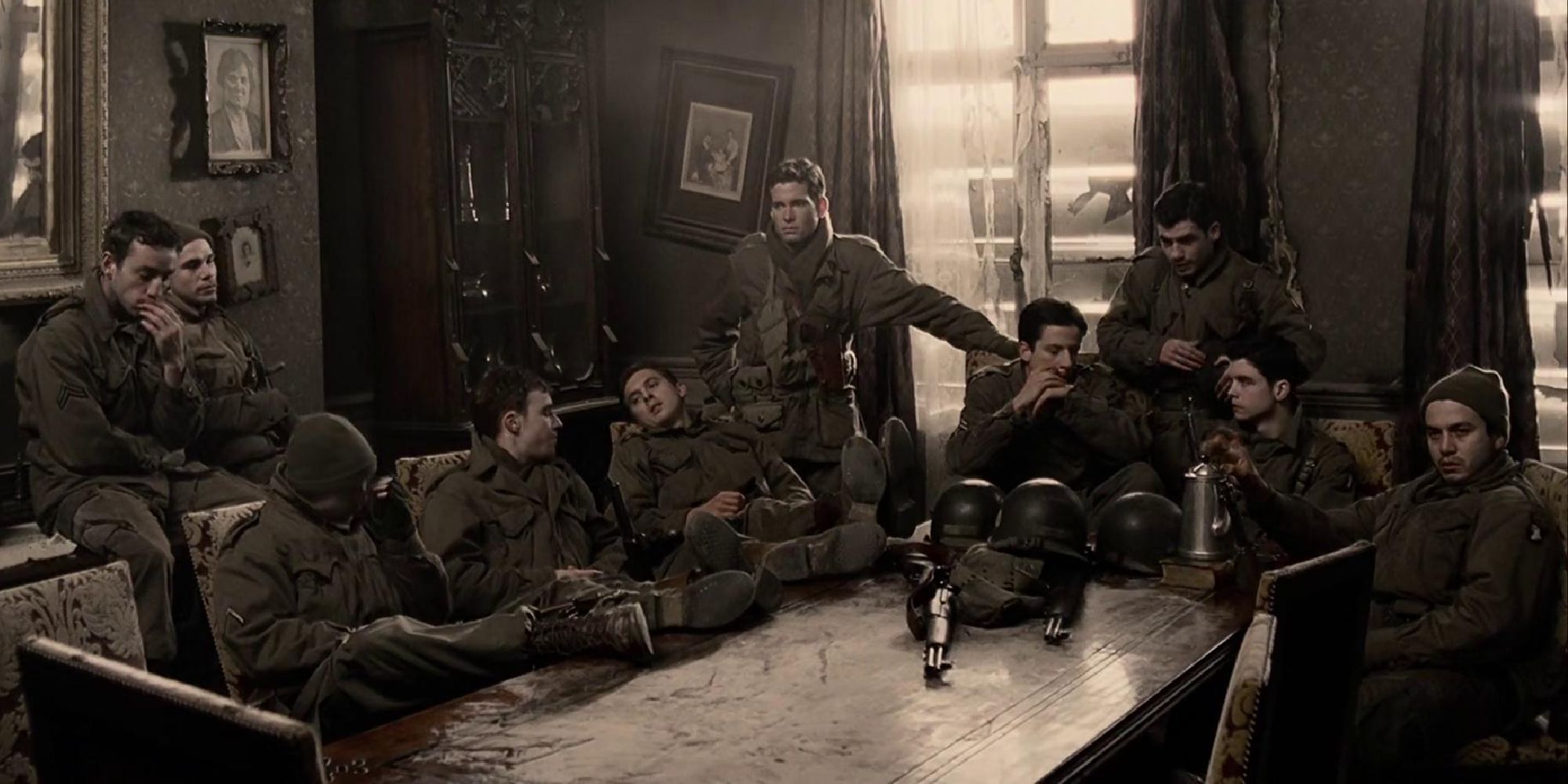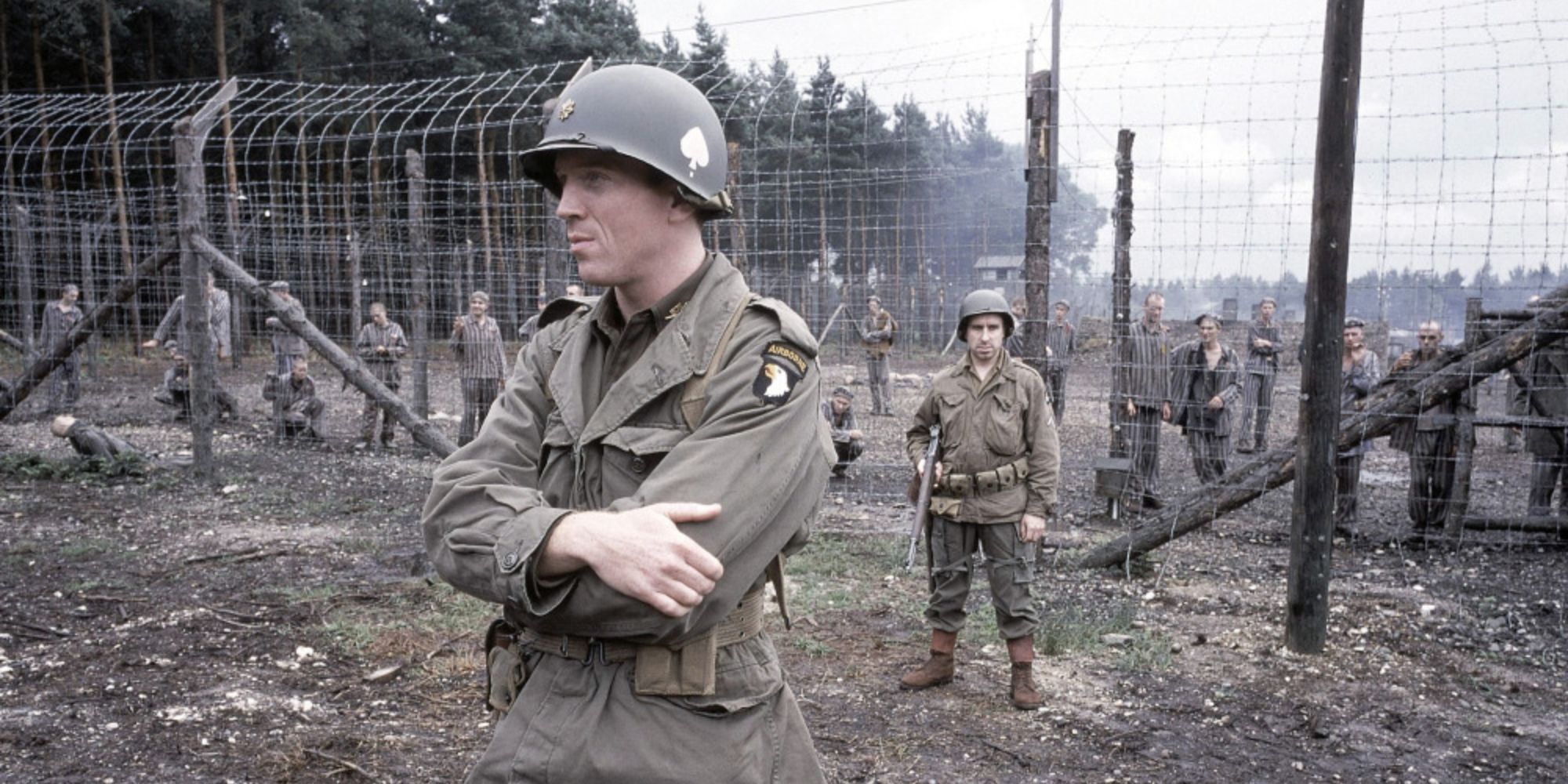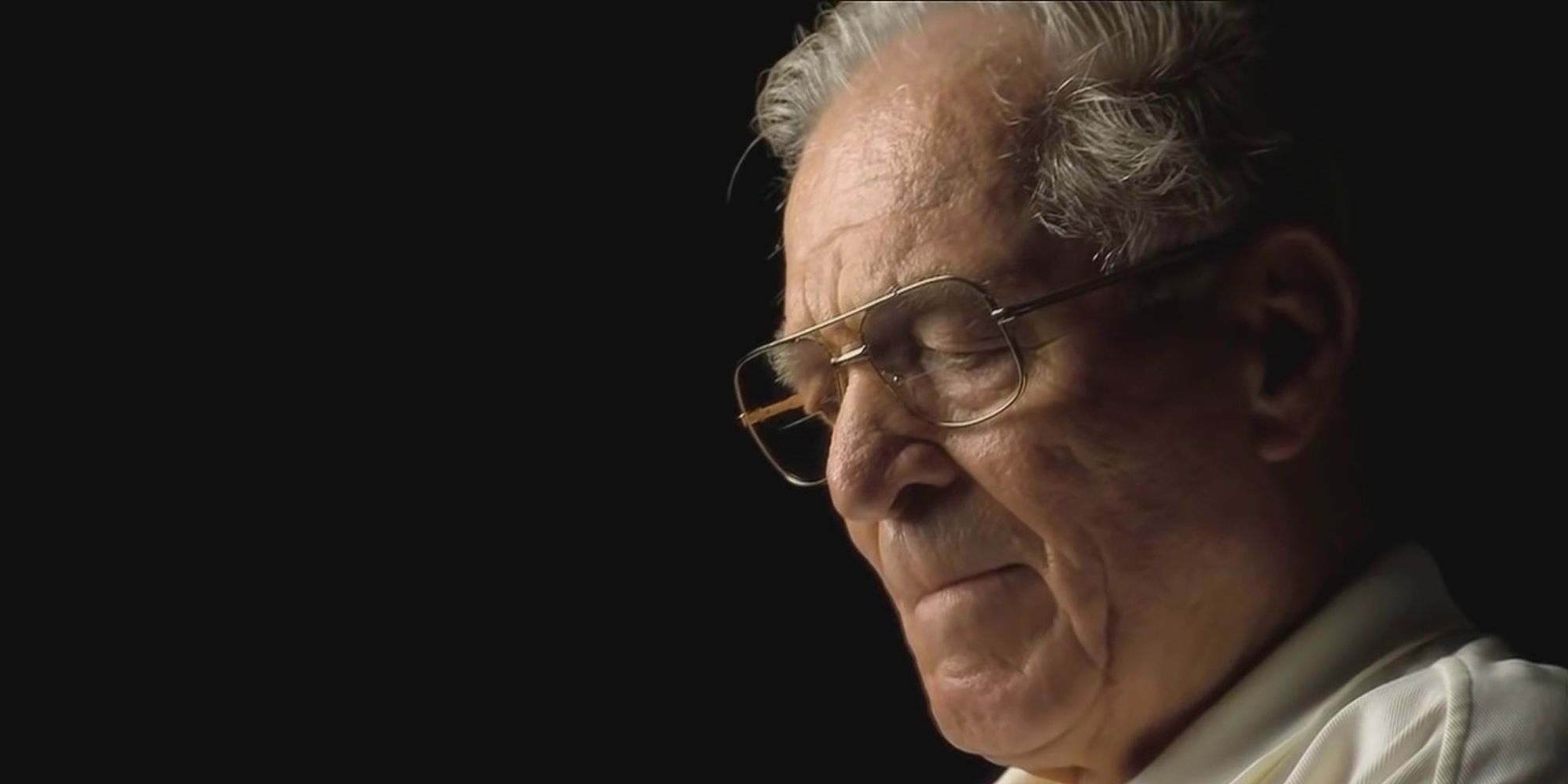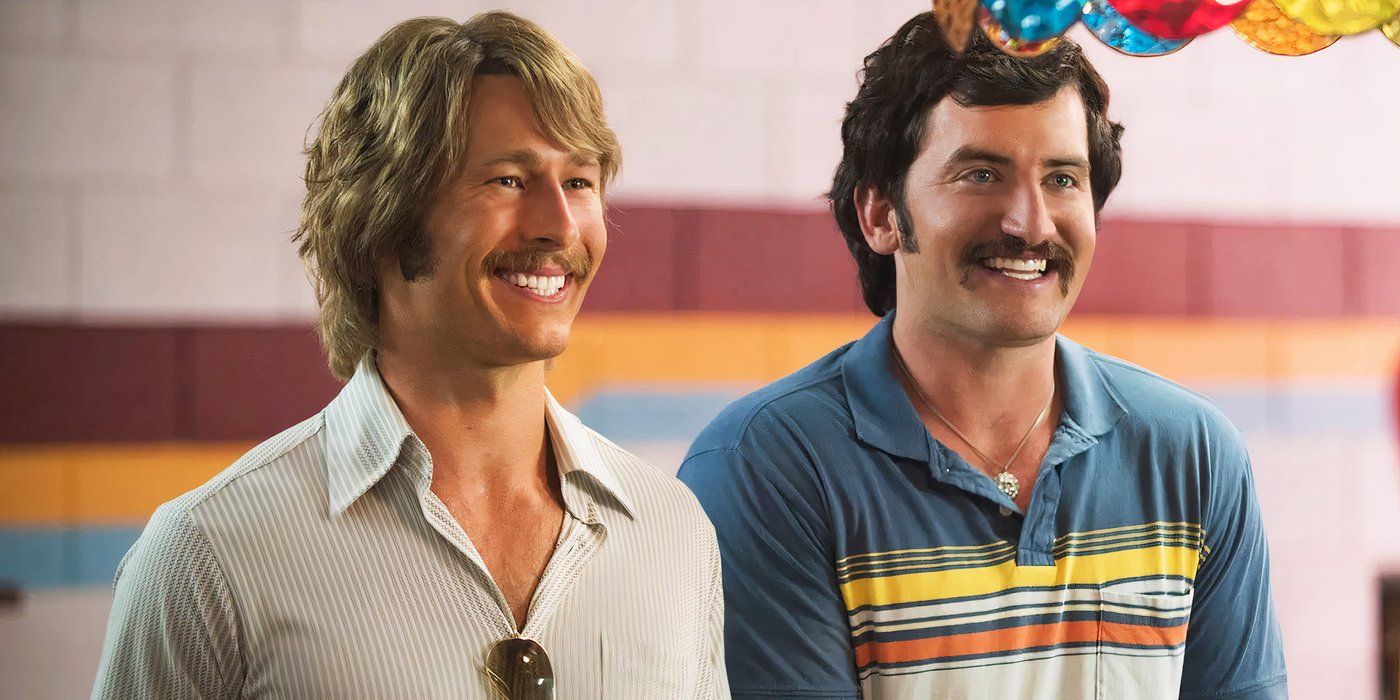Band of Brothers is one of those shows where it’s hard to come up with anything positive to say about it that hasn’t already been said countless times over the past 20+ years. As far as miniseries go, it’s one of the greatest and most acclaimed of all time, occupying the same kind of space within the realm of single-season shows that iconic series like The Sopranos, The Wire, and Breaking Bad occupy when it comes to the best multi-season dramas of all time.
It follows the men of Easy Company, the 2nd Battalion of the 506th Parachute Infantry Regiment of the 101st Airborne Division (easy to just say Easy Company from now on), beginning with their training during 1942 and following their experiences while fighting in Europe all the way up until the end of the Second World War. It’s a gripping, visceral, and rather historically accurate series about World War II and the sacrifices a group of soldiers made while fighting for their country. Beyond being technically impressive, Band of Brothers is also extremely well written, with some of the best quotes from the show – one from each of its 10 excellent episodes – highlighted below.
Band of Brothers
The story of Easy Company of the U.S. Army 101st Airborne Division and their mission in World War II Europe, from Operation Overlord to V-J Day.
- Release Date
- September 9, 2001
- Seasons
- 1
1 “So that’s why they gave us ice cream.”
“Currahee” – Episode 1 (2001)
As you might expect from a war story that wants to feel authentic, a large amount of time is spent on depicting the grueling training Easy Company went through before combat. Much of this is confined to the first episode, “Currahee,” with sequences of training ultimately proving suitable in providing character development, and a sense of who these men are before they experience combat.
It’s not necessarily comedic as an episode, but it is generally lighter than later episodes in the series, which deal with the horrors of combat and how fragile life is during wartime. But, at the same time, humor is a good coping mechanism in times of stress (shown very well by M*A*S*H), with Staff Sergeant William Guarnere sarcastically declaring they were only given ice cream because they’re about to embark on the “great adventure” that is parachuting into Normandy.
2 “I don’t think that’s the correct reply, trooper. I say flash, you say thunder.”
“Day of Days” – Episode 2 (2001)
There’s a particular sense of chaos found within “Days of Days,” the episode that sees Easy Company finally enter active on June 6, 1944, as part of the Allied invasion of Normandy. Steven Spielberg’sSaving Private Ryan shows this pivotal day of combat from the perspective of soldiers landing on the Normandy coast from the sea, while Band of Brothers depicts what it was like to enter the territory by air.
Members of Easy Company become separated, and a good chunk of “Days of Days” revolves around their attempts to reunite, organize, and then continue with the task at hand. Things aren’t helped by a sense of uncertainty when it comes to being in – and communicating during – combat. This includes the usage of the word “flash”, a response of “thunder,” and a further countersign of “welcome” being used as a password system of sorts (or challenge/sign/countersign) to identify allies.
3 “The only hope you have is to accept the fact that you’re already dead. And the sooner you accept that, the sooner you’ll be able to function as a soldier’s supposed to function. Without mercy, without compassion, without remorse. All war depends upon it.”
“Carentan” – Episode 3 (2001)
Things continue to get heavier and more intense in the third episode of Band of Brothers, “Carentan,” named after the Battle of Carentan, which occurred in the week immediately following June 6, 1944. While there was danger and tension in the previous episode, “Carentan” goes to another level when it comes to war combat, and depicts it as brutally and realistically as you’d expect a well-made war film to.
Anyone not convinced that Band of Brothers was something more cinematic than just about any miniseries that came before would’ve likely been swayed by this episode, and the dialogue reflects the sense of higher stakes, too. Lieutenant Ronald Speirs drives this home in a memorable and brutally honest speech to a traumatized soldier, effectively saying that an acceptance that one is going to die is vital for a soldier to have a chance at succeeding in their given task.
4 “If there ain’t no body, then there ain’t nobody dead.”
“Replacements” – Episode 4 (2001)
“Replacements” almost feels like something of a breather episode at first, at least by the standards of Band of Brothers. Befitting the episode’s title, things open with new members joining Easy Company, though not always fitting in with those who were there for the Normandy operation. Then, of course, things move away from being breezy entirely when the episode ends up revolving around Operation Market Garden, which took place in September 1944.
It’s an event that was depicted in greater detail during the epic 1977 film A Bridge Too Far, and is captured with solid detail here from Easy Company’s perspective, once again parachuting into dangerous territory. It’s also an episode with the darkly memorable line of “If there ain’t no body, then there ain’t nobody dead,” courtesy, once again, of noted ice cream fan William Guarnere.
5 Donald Malarkey: “Hey, Skip! Where ya been? I’ve been looking all over for you!” Warren Muck: “Well, Don, I was at home in Tonawanda, but then Hitler started this whole thing, so now I’m here.”
“Crossroads” – Episode 5 (2001)
Shifting into October 1944, “Crossroads” has a similar feel and tone to the past episode or two of the show, and marks the final point before things devolve into even more ferocious and grueling warfare with the approaching winter battles depicted in future episodes. Notably, the episode ends with Easy Company being sent to Bastogne, where they’re set to participate in the Battle of the Bulge.
But that’s getting ahead of things, because “Crossroads” is more about exploring moral dilemmas than depicting extensive combat, principally relating to a friendly fire incident and one soldier feeling intense guilt about shooting a German soldier who appeared to be a teenager. At least the episode finds room for a humorous exchange between Technical Sergeant Donald Malarkey and Sergeant Warren Muck, because future episodes prove even lighter on any sort of comedic relief.
6 “Hey, Frank, you keep cleaning those teeth, the Germans are going to see you a mile away.”
“Bastogne” – Episode 6 (2001)
The sixth episode of Band of Brothers, “Bastogne,” is something of a turning point, and further shows how this miniseries was determined to show the European theater of World War II in all its brutality and rawness. The Battle of the Bulge took place between December 1944 and January 1945, leading to soldiers having to fight in horrifically cold conditions that also impacted things like visibility, with confusion and coldness being a deadly combination.
Staff Sergeant John Martin makes something approaching a joke relating to the visibility, suggesting that Technician Fourth Grade Frank Perconte’s continual cleaning of his teeth might give their position away. It’s a small amount of humanity shown in an otherwise inhumanely harsh setting, and a key reminder of the camaraderie the members of Easy Company had with each other, even in the most difficult of times.
7 “It’s called ‘wounded,’ Peanut. ‘Injured’ is when you fall out of a tree or something.”
“The Breaking Point” – Episode 7 (2001)
“The Breaking Point” could well represent Band of Brothers at its most intense and shocking, and is a key factor in why the miniseries is overall considered one of the best of all time. The harsh conditions that were already challenging in “Bastogne” are taking a toll on the men of Easy Company even more as the wintery combat goes on, with numerous injuries and deaths being depicted throughout the episode.
John Martin gets to clarify the difference between being wounded and injured to another soldier who mistakenly used the latter term when asking about what kind of shape the men of Easy Company were in. It’s perhaps gallows humor, coming in the episode that it does, with “The Breaking Point” living up to its title by being the most visceral episode of Band of Brothers when it comes to depicting the horrors of active combat.
8 “How could anyone ever know of the price paid by soldiers in terror, agony and bloodshed if they’d never been to places like Normandy, Bastogne or Haguenau?”
“The Last Patrol” – Episode 8 (2001)
“The Last Patrol” jumps forward to February 1945, things have turned around ever so slightly for Easy Company, but only compared to the combat they were engaged in during episodes 6 and 7. They end up in Haguenau, France, which ultimately becomes one of the places mentioned by Private David Webster when reflecting on the locations where sacrifices and casualties ensued.
It’s a fitting thought for the episode, which is a more reflective one as the show begins the process of slowly winding down, owing to the overall sense that the war is starting to come to an end, by early 1945. This doesn’t mean “The Last Patrol” lacks drama or compelling moments, by any means, and it certainly doesn’t mean the next two episodes lack those things either, as Band of Brothers is ultimately a show that concludes in a remarkably powerful way.
9 Cpt. Nixon: “All the locals claim they didn’t know the camp existed.” Richard D. Winters: “Well, they’re going to get one hell of an education tomorrow.”
“Why We Fight” – Episode 9 (2001)
There’s a different sort of sadness and brutality found in “Why We Fight,” compared to past episodes of Band of Brothers that had proven harrowing and/or heartbreaking. Easy Company makes it into Nazi Germany during the final days of the war (at least on the European side of things), and some members come across one part of the immense Dachau concentration camp, becoming forever shaken by what they witness there.
It’s been abandoned by German forces, and there’s clear evidence of unspeakable death and cruelty within the camp’s confines, alongside some extremely malnourished survivors. It’s an episode about this grim aspect of World War II, and follows familiar characters as they struggle to comprehend the horrors they’ve come across; a kind of evil of a banal and systematic nature that numerous films about World War II ultimately try and grapple with, as difficult as that can be. The above exchange between Captain Lewis Nixon and Major Richard Winters exemplifies this well.
10 “I cherish the memories of a question my grandson asked me the other day when he said, ‘Grandpa, were you a hero in the war?’ Grandpa said, ‘No… but I served in a company of heroes.'”
“Points” – Episode 10 (2001)
While Band of Brothersisn’t quite a documentary, it does have – as mentioned before – a high level of historical accuracy, and the show also features brief interview segments with some of the men of Easy Company who were still alive during the show’s production. It’s a stark reminder of how all the characters viewers see on screen were real people, and inevitably had to go through the sorts of hardships and tests of moral/physical strength as seen in Band of Brothers.
Things are at their most powerful and emotional during an interview with the real-life Richard Winters, who would’ve been 83 when the show aired in 2001. He quotes another soldier, Sgt. Myron Ranney, who told Winters of an exchange he had with his grandson, and it’s a powerfully bittersweet moment that highlights the emotional crux of the entire show, capping off a remarkable series perfectly.
Band of Brothers can be streamed on Max in the U.S.
Watch on Max

